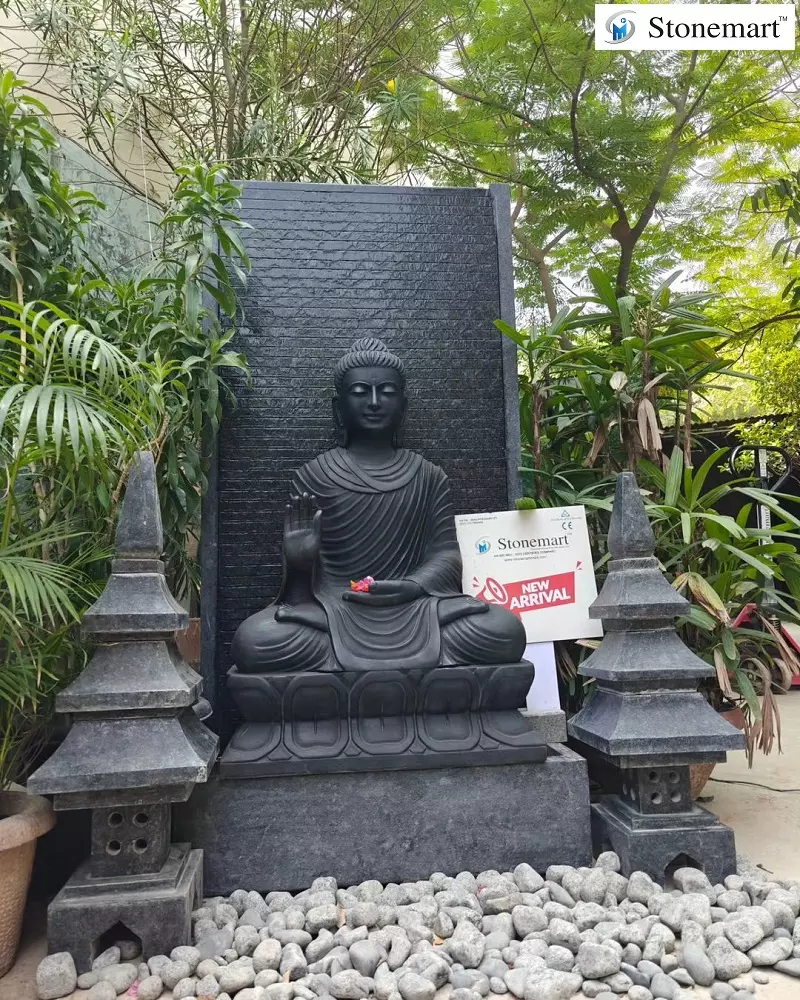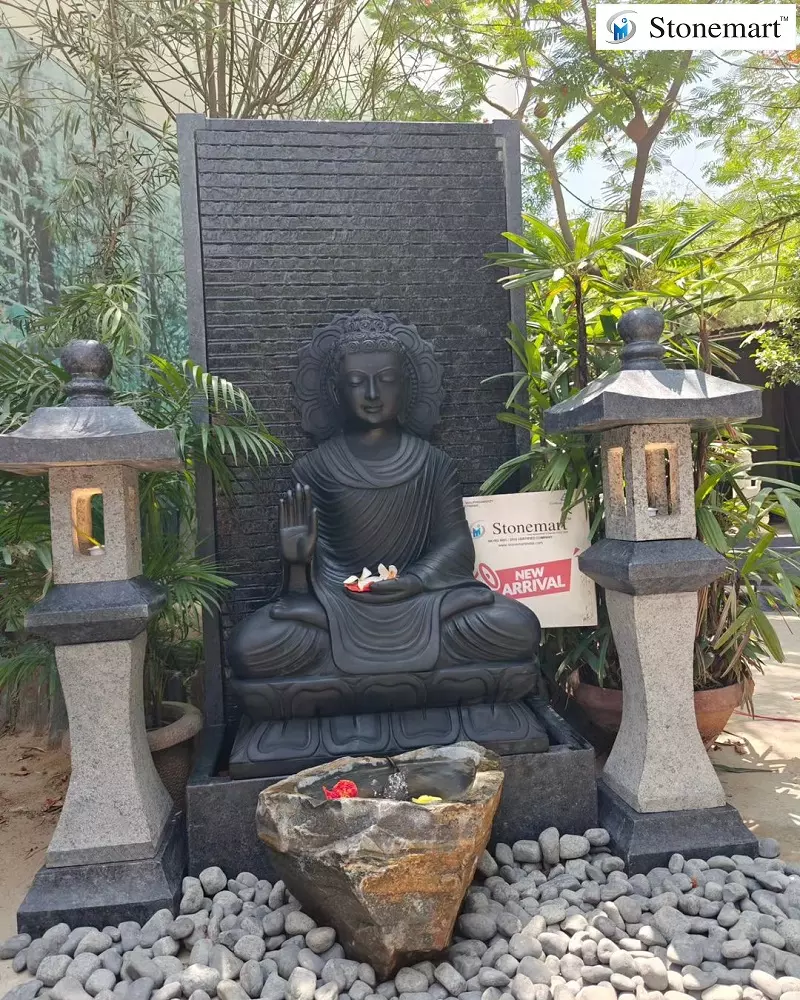What is the Difference Between Traditional Buddhism and Zen Buddhism - Part 2

In the previous blog, we discussed about some of the prominent differences between traditional Buddhism and Zen Buddhism. It helped us get a better insight on buying Buddha statue for home and garden decor and what are the principles associated with both the Buddhist ideologies.
Whether we are going for the meditating Buddha statue, blessing Buddha statue or Zen garden Buddha set-up, understanding the history and the principles of both the branches of Buddhism is always helpful in knowing what we are actually bringing to our home or commercial establishment.

The conventional or traditional Buddhism was founded in India by Siddharth Gautama which later generated offshoot branches in the form of Mahayana Buddhism, Theravada Buddhism and Vajrayana (which sometimes described as Tibetan) Buddhism.
MUST READ: What is the Difference Between Traditional Buddhism and Zen Buddhism? Part 1
Zen Buddhism is a branch (sect) of Mahayana Buddhism which originated in China and later extended to Japan. The concept of Zen was founded when the Buddhists were introduced to Taoists.
Here, let us continue from the part one to identify some of the major differences between traditional Buddhism and Zen Buddhism -
| Point of Distinction | Traditional Buddhism | Zen Buddhism |
|---|---|---|
| Status of women | There is no distinctions between men and women. Women hold equal rights to men, and vice versa in the Sangha. As per the teachings of the Buddha, it is a major part of the Sangha. | In Zen Buddhism also women and men hold equal status. |
| Religious Law | The trinity of the Buddha, the Dharma and the Sangha | Primarily Dharma |
| Concept of Deity | As per some interpretations, there are certain beings in realms of the heaven but they are also bound by "samsara". They might suffer less than the mortal beings but have not yet achieved the salvation (nibbana) |
Zen believes in the "Buddhas" which are immortal and are existing in infinite numbers. They feature nearly every attribute which is usually found in the deities of all the religions. It is opposite to what has been taught in the oldest teachings (Pali canon) which are validated by Mahayana texts later on. |
| Religion Which Atheists Might Still be Adherents | Yes | Yes |
| View of Abrahamic Religions | N/A | Zen is a Dharmic religion. It is not an Abrahamic religion. But it sees no contradiction in following more than one religion. |
| View of Other Dharmic Religions | Since the meaning of the word Dharma is doctrine, way, teaching, discipline, or law; other Dharmas are rejected. | Zen is a Dharmic religion. But there appears no contradiction while belonging to more than one religion. |
| Views on Other Religions | Conventional Buddhism is practical in philosophy and neutral against other religions. | There appears no contradiction while belonging to more than one religion. |
| Virtues in which religion is based upon | Compassion | Compassion |
| Geographical Distribution and Predominance | (Majority or strong influence) Primarily in Thailand, Sri lanka, Cambodia, India, Nepal, Tibet, Bhutan, Japan, Laos, Myanmar (Burma), Vietnam, China, Mongolia, Singapore, Hong Kong, Korea and Taiwan. Exist in other few countries as small minorities. | Contemporary Japan |
| Holy Days/ Official Holidays | Vesak day in which the birth, the enlightenment/ awakening, and the parinirvana of the Buddha are celebrated. | Rohatsu, December 8th, celebrating the enlightenment of the Shakyamuni Buddha. |
| Scriptures | Tripitaka: A vast canon composed of 3 sections i.e. the Discourses, the Commentaries, and the Discipline. Also incorporates some early scriptures, like the Gandhara texts. | There is no concept of dogma. |
| Goal of Philosophy | To eradicate mental suffering. | To emancipate all sentient beings from suffering. |
| Symbols | The conch, endless knot, lotus, parasol, fish, vase, victory banner and dharmachakra (Wheel of Dharma), which is commonly portrayed in dharmachakra mudra Buddha statues. | Ensō (Zen circle), often executed in one exhale. It demonstrates a world of the spirit without the beginning and the end. |
| Place and Time of origin | The origin of Buddhism dates back to one man, Siddhartha Gautama. Who awakened to become the historical Buddha. He was born in Lumbini (in present-day Nepal). He became enlightened at Bodhgaya, India and conveyed his first set of teachings at a deer park in Sarnath, India. | The Chan School of Buddhism. Affiliated to a major Chinese sect of Buddhism attributed to Bodhidharma. It focuses on attaining Buddhahood, the pinnacle of Buddhist religious goal via enlightenment of one's own mind. The school of thought subsequently spread to Japan and called as Zen. |
| Principle | This life is synonym to suffering. The only way to escape from this vicious cycle of suffering is to dispel one's ignorance and cravings by realizing the Four Noble Truths and thus practicing the Eightfold Path. | Zazen, the Dharma gate of the joyful ease. It is the one practice of sitting meditation that leads to the ultimate realisation of true self/no self. The dhyan mudra Buddha idol and anjali mudra Buddha idol are symbolic to practicing this Buddhist principle. |
| Sexual Conduct | The Buddha taught his pupils to always subdue sexual misconduct. One should never consciously cheat on one's spouse, have sexual intercourse with another's husband or wife, an animal or a minor. Monks and nuns stay celibate. | Zen Buddhism teaches never to "misuse" sexuality. |
It is well expected that you have attained clear distinction between the concept of traditional Buddhism and Zen Buddhism from the table drawn above. Now it is your prerogative whether to buy Buddha statue and place it solely in terms of conventional set-up. It can be your favorite Buddha sculpture in abhaya mudra, Buddha sculpture in dhyana mudra, Buddha sculpture in anjali mudra, Buddha sculpture in bhumisparsha mudra, Buddha sculpture in dharmachakra mudra, Buddha sculpture in reclining mudra, Buddha sculpture in vitarka mudra.

MUST READ: What is the Difference Between a Dhyana Mudra Buddha Statue and a Reclining Mudra Buddha Statue?
However, a Zen garden Buddha idol would not be installed alone. Here, the idea would be the creation of a minimalist dry landscape featuring the stone Buddha statue in any of the above written mudras. Indeed, it would come with natural stone décor components such as pebbles, gravel, rocks, stone lamps, planters, and a rock urali or fountain to introduce the balance and harmony of water.
Reach Stonemart™️ and buy Buddha Stone Statue for Home, Garden in India from the largest collection in both traditional Buddha and Zen Buddha décor and spiritual set-up. An ISO 9001:2015, CE certified leading stone manufacturer and exporter in India since 2006 transforming natural stones into priceless spiritual and Vastu décor products.
Shop today to seek the blessings of your favorite Buddha Ji!
